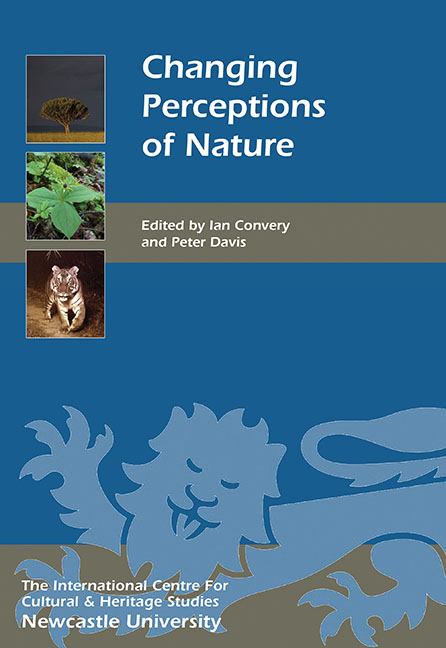Book contents
- Frontmatter
- Contents
- List of Illustrations
- Acknowledgments
- List of Abbreviations
- Foreword
- Introduction
- HISTORICAL PERSPECTIVES ON NATURE
- COLLECTING NATURE
- 7 Renaissance Collecting and Understanding of the Natural World
- 8 Botanical Collecting, Herbaria and the Understanding of Nature
- 9 Taxidermy and the Representation of Nature
- 10 The Significance of Natural History Collections in the Twenty-first Century
- INTERPRETING NATURE AND LANDSCAPES
- CONSERVING NATURE
- PEOPLE–NATURE INTERACTIONS
- List of Contributors
- Index
- Miscellaneous Endmatter
8 - Botanical Collecting, Herbaria and the Understanding of Nature
from COLLECTING NATURE
Published online by Cambridge University Press: 26 October 2017
- Frontmatter
- Contents
- List of Illustrations
- Acknowledgments
- List of Abbreviations
- Foreword
- Introduction
- HISTORICAL PERSPECTIVES ON NATURE
- COLLECTING NATURE
- 7 Renaissance Collecting and Understanding of the Natural World
- 8 Botanical Collecting, Herbaria and the Understanding of Nature
- 9 Taxidermy and the Representation of Nature
- 10 The Significance of Natural History Collections in the Twenty-first Century
- INTERPRETING NATURE AND LANDSCAPES
- CONSERVING NATURE
- PEOPLE–NATURE INTERACTIONS
- List of Contributors
- Index
- Miscellaneous Endmatter
Summary
BEFORE HORTUS SICCUS
Due to their uses as food and medicine, plants have always been a subject of observation, study, comparison and knowledge for humankind. However, it was only in the sixteenth century that people developed a method of conserving plants and transmitting knowledge about them. This technique is known as the Herbarium or Hortus siccus: in other words, a documented collection of dried plants permanently preserved on paper. It may seem strange that such a simple, obvious and relatively cheap method, that it is easy to replicate and transmit, has such recent origins.
As Janick (2006, 571) rightly observes, ‘Pre-historic man had already by trial and error established the potential uses of the plants that surrounded him’. People learnt which plants were edible or poisonous, curative or dangerous, pleasant to the taste or unpalatable, and were able to assess the degrees to which plants were capable of nourishing and strengthening the body. As time passed, agronomic and medical knowledge went their separate ways as farmers and doctors (who were often also priests) developed their knowledge of plants.
In his History of Botanical Science (1981), Morton outlined the development of botany as a science, relating it to the social evolution of Western communities. He suggests that one of the first signs of this may be found in the sixth century BC, when philosophers in Greece began to develop an interest in all living organisms, animals and plants; he (Morton 1981, 22) defines this moment as ‘… the beginning of real biological investigation’. Theoretical and practical considerations were formulated that tried to explain the nature of plants, what they were (Anaxagoras hypothesised that they were ‘animals fixed in the earth’), and how and why certain phenomena, such as the dispersion of seeds or fruiting, occur. At that time, observations of an agronomic and medicinal nature (the latter with the advent of Hippocratic ideas) flourished. Plants became the essential constituents of the majority of medicaments.
The theories and observations on plants by Aristotle and his disciple Theophrastus (fourth century BC) have been widely studied and commented upon. Aristotle, a student of Plato, suggested that one single Natural Kingdom of living beings existed, within which plants were considered inferior to animals simply because they lacked feeling and thought.
- Type
- Chapter
- Information
- Changing Perceptions of Nature , pp. 89 - 98Publisher: Boydell & BrewerPrint publication year: 2016



